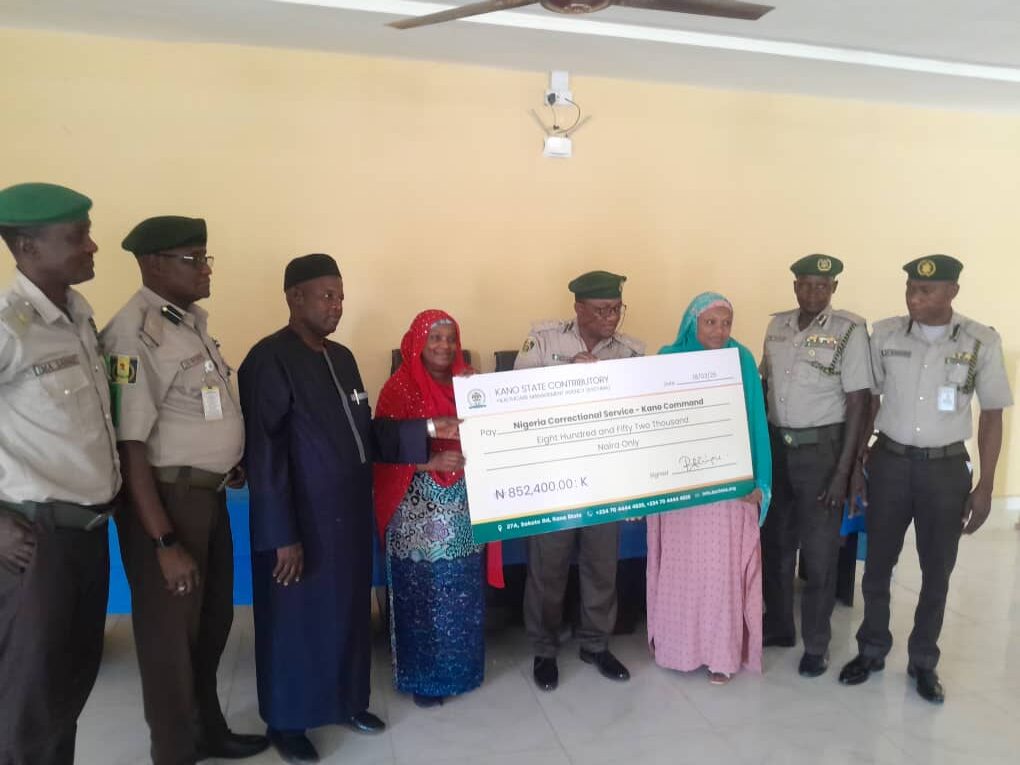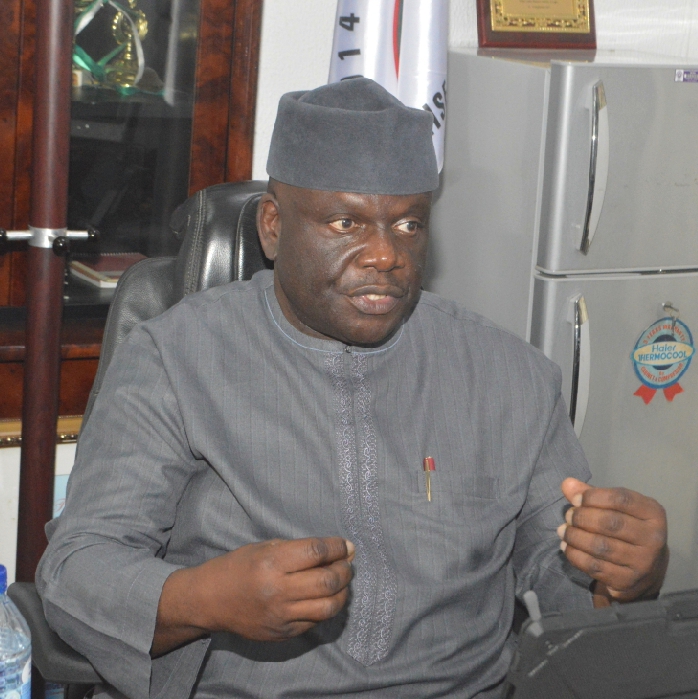Health
THE NINE DANGEROUS BUGS ON WHO WARNING LIST OF THREATS TO THE WORLD – FROM NIPAH TO ZIKA

T he World Health Organization (WHO) holds an alert list of pathogens which they say are ‘priority diseases’ that could be the biggest threats to humans unless action is taken, with Covid, Zika and Disease X are all ones to watch. While locked down Brits are preparing to slowly return to normal life the next deadly pandemic could be just around the corner, scientists fear.
The World Health Organization (WHO) holds an alert list of pathogens which they say are ‘priority diseases’, that without proper research, could be the next big threat to humanity. Covid-19 is among that list of top tier diseases, that also includes Ebola, Zika virus and Disease X. The WHO said of the list: “Worldwide, the number of potential pathogens is very large, while the resources for disease research and development [R&D] is limited.
“To ensure eforts under WHO’s R&D Blueprint are focused and productive, a list of diseases and pathogens are prioritized for R&D in public health emergency contexts.”
The list goes on to identify nine diseases that have scientists concerned about. These are said to “pose the greatest public health risk” due to their ‘epidemic potential’ and associated lack of or need for, appropriate countermeasures. Covid is currently at the top of their list as the world continues to reel from the effects of the pandemic. But the other eight are all deadly and could cause yet another threat to humanity unless action is taken, scientists warn.
What are the other eight so-called ‘priority diseases’?
1. Nipah virus Scientists are worried about the brain-swelling Nipah disease, which has a death rate of up to 75 per cent, potentially becoming the next ‘big’ virus. Vomiting, seizures and brain swelling are some of the symptoms of the virus, which first jumped from pigs to farmers in Malaysia in 1999.
Some people can also experience pneumonia and severe respiratory problems, including acute respiratory distress. Encephalitis and seizures occur in severe cases, progressing to coma within 24 to 48 hours. The mortality rate of Nipah ranges between 40 to 75 per cent, far higher than the rate for coronavirus, according to the World Health Organization.
2. Ebola Ebola virus is a severe, often fatal illness affecting humans, after being transmitted from wild animals, like fruit bats, primates and porcupines. It then spreads in humans through direct contact with the blood or other bodily fluids of infected people. It has an average fatality rate of around 50 per cent. Symptoms can be sudden and may include fever, fatigue, muscle, pain, headache, and a sore throat.
This is followed by vomiting, diarrhea, rash, symptoms of impaired kidney and liver function, and in some cases internal and external bleeding. A new outbreak was recently announced in Guinea after three people died and four others fell ill. It is the first resurgence of the disease there since the worst outbreak between 2013 and 2016.
3. Zika The virus, mainly transmitted by the bite of an infected mosquito, sparked fears of an epidemic in 2019. Most of northern Europe was believed to be under threat as the Aedes mosquitoes moved away from Africa. There were particular concerns for pregnant women as the disease is transmitted from the mother to her foetus, as well as through sexual contact or the transfusion of blood. No vaccine is yet available for the prevention or treatment of Zika virus infection.
Symptoms are generally mild including fever, rash, conjunctivitis, muscle and joint pain, malaise, and headache. But infection during pregnancy is a cause of microcephaly – where the baby’s head is small, and other congenital abnormalities in the developing foetus and newborn baby.
4. MERS and SARS The WHO lists both of these illnesses together. Middle East respiratory syndrome coronavirus (MERS-CoV) is a virus transferred to humans from infected camels. Severe illness can cause a respiratory failure which requires ventilation and support in an intensive care unit. The virus appears to cause more severe disease in older people, people with weakened immune systems and those with chronic diseases. About 35 per cent of patients with MERSCoV have died.
Severe acute respiratory syndrome (SARS), meanwhile, is a viral respiratory disease caused by a SARS-associated coronavirus. It was first identified at the end of February 2003 during an outbreak that emerged in China and spread to four other countries. SARS is an airborne virus and can spread through small droplets of saliva in a similar way to Covid-19. The first symptom of the illness is generally fever leading to a dry cough. In 10 to 20 per cent of cases, the respiratory illness is severe enough to require intubation and mechanical ventilation. The fatality rate is around three per cent.
5. Crimean-Congo hemorrhagic fever Crimean-Congo hemorrhagic fever is a virus transmitted by ticks and can also be contracted through contact with animals being slaughtered. The onset of symptoms is sudden, with fever, muscle ache, dizziness, neck pain, backache, headache, sore eyes and photophobia (sensitivity to light). Severely ill patients may experience rapid kidney deterioration, sudden liver failure or pulmonary failure after the fifth day of illness. The fever has a high case fatality ratio from 10 to 40 per cent.
6. Lassa fever Humans usually become infected with the Lassa virus through exposure to food or household items contaminated with urine or faces of infected Mastomys rats. The disease is endemic in the rodent population in parts of West Africa. Person-to-person infections and laboratory transmission can also occur, particularly in health care settings in the absence of adequate infection prevention and control measures.
The overall case-fatality rate is 1 per cent. About 80 per cent of people who become infected with the Lassa virus have no symptoms. 1 in 5 infections results in severe disease, where the virus affects several organs such as the liver, spleen and kidneys.
7. Rif Valley fever Rif Valley fever, first identified in Kenya in 1931, mostly afects animals but can also infect humans. It is passed by mosquitoes and blood-feeding flies. In humans, the disease ranges from a mild flu-like illness to severe hemorrhagic fever that can be lethal. When livestock are infected the disease can cause significant economic losses due to high mortality rates in young animals and waves of abortions in pregnant females. While some human infections have resulted from the bite of infected mosquitoes, most human infections result from contact with the blood or organs of infected animals. No human-to-human transmission has yet been documented and in 2000, the first reported cases of the disease outside the African continent came from Saudi Arabia and Yemen.
8. Disease X Disease X is a placeholder name adopted by the World Health Organization three years ago, representing a hypothetical, as-yet-unknown pathogen that could cause a future epidemic. Mark Wool house, professor of infectious disease epidemiology at the University of Edinburgh, said that in 2017, he and his colleagues got WHO to add Disease X to its list of priority diseases.
This potential new virus could be caused by “zoonotic” diseases – which is when infections move from animals to humans. The WHO says that a ‘serious international epidemic’ could be caused by a pathogen that is currently unknown to cause human disease. mirror.co.uk
Health
First Lady directs establishment of PHC in Sauka FCT to combat TB

The First Lady of Nigeria, Mrs Oluremi Tinubu, has directed Dr Adedolapo Fasawe, Mandate Secretary of the FCT Health Services and Environment Secretariat, to oversee the establishment of a Primary Healthcare Centre in Sauka, FCT.
A statement issued by the Special Adviser to the Secretary, Bola Ajao, on Wednesday highlighted that the initiative aimed to strengthen healthcare services in the region.
It also emphasised the goal of combating tuberculosis (TB), with support from FCT Minister, Mr Nyesom Wike.
According to the statement, Mrs Tinubu, who also serves as the Global and National Stop TB Champion, made the announcement at an event in Sauka, FCT, to commemorate World Tuberculosis Day 2025.
The event was organised by the Federal Ministry of Health in collaboration with the FCT Health Services Secretariat, Stop TB Partnership Nigeria, the World Health Organisation (WHO), and other partners.
During her speech, the First Lady emphasised the importance of grassroots interventions in the fight against TB.
She noted that the event themed, “Yes! We Can End TB: Commit, Invest, Deliver,” had been locally translated to “We Fit Run Am; A Collective Call for Action Against TB” to better resonate with the community.
“To support the fight against this communicable disease, I will not only donate N1 billion but also approve the establishment of a Primary Healthcare Centre in Sauka Community.
“This initiative aligns with President Tinubu’s Renewed Hope Agenda for an efficient healthcare system,” the First lady stated.
The First Lady added that Fasawe would oversee the project’s implementation with the backing of the dedicated FCT Minister, Wike.
She further explained that the new facility would serve as a critical hub for TB detection, treatment, and general healthcare services, ensuring that residents received timely and quality medical care.
In spite of TB being preventable and treatable, the First Lady pointed out that it remained a significant public health challenge in Nigeria, which ranked among the countries with the highest TB burden globally.
“This underscores the urgent need for improved healthcare services and stronger community-based interventions.”
In her response, Fasawe commended the First Lady for her unwavering dedication and strong support in the fight against TB elimination.
She also acknowledged the efforts of FCT healthcare workers, whose hard work had contributed to significant improvements in the health system.
“The establishment of the new Primary Healthcare Centre in Sauka is a significant step toward enhancing healthcare services, improving TB control, and ensuring accessible healthcare for all in the FCT,” Fasawe affirmed.
The event also featured an exhibition stand by the Public Health Department of the FCT, where attendees were provided with free TB testing.
Key stakeholders in attendance included Hajiya Nana Shettima, Wife of the Vice President; Members of the National Assembly; Dr Iziaq Salako, Minister of State for Health; and Mrs Adekemi Nanpad, Comptroller General of the Nigeria Immigration Service.
Also present were wives of the Federal Executive Council members, Dr Walter Kazadi Mulombo, WHO Country Representative, and many others.
Health
Kano Govt pledges quality healthcare in custodial centres

The Kano State Government has pledged its commitment to quality healthcare services for inmates in custodial centres across the state.
The Executive Secretary of the Kano State Contributory Healthcare Management Agency (KSCHMA), Dr Rahila Aliyu-Mukhtar, made the pledge while presenting the allocation of a monthly capitation of N852, 400 to support medical services for inmates in custodial centres.
She lauded Gov. Abba Kabir-Yusuf, for supporting vulnerable individuals and prioritising healthcare for inmates.
The executive secretary also commended the Kano command of the Nigerian Correctional Service for its support and cooperation.
She commended Kano for being one of the first states to enrol inmates in a structured healthcare scheme.
Responding, the Controller of Corrections, Kano State Command, Ado Inuwa expressed appreciation to the state government for its unwavering support in the enrollment of inmates under the healthcare services scheme.
He assured that the allocated funds would be utilised judiciously to cover essential medical treatments and emergency care for inmates.
Inuwa lauded Aliyu-Mukhtar for her zeal, determination and commitment to humanity, particularly in ensuring that inmates have access to healthcare services.
NAN reports that on Dec. 31, 2024, the state government approved the enrolment of inmates in custodial facilities into the State’s Health Contributory Scheme, ensuring they now enjoy health insurance coverage.The scheme provides inmates with access to basic and comprehensive healthcare services while in custody.
Headlines
NAFDAC strengthens regulations to combat antimicrobial resistance in Nigeria

The National Agency for Food and Drug Administration and Control (NAFDAC) has intensified its efforts to combat Antimicrobial Resistance (AMR) in Nigeria by implementing stricter regulations and surveillance measures.
Dr Tunde Sigbeku, Deputy Director and AMR-OH Focal Person at NAFDAC, said this on Thursday in Lagos.
Sigbeku spoke during a five-day training session for journalists, civil society organisations (CSOs) and community-based organisations (CBOs) focused on AMR.
The News Agency of Nigeria (NAN), reports that the training was organised by the Fleming Fund Country Grant (FFCG II).
The project is supported by the UK Government’s Foreign, Commonwealth and Development Office (FCDO).
Sigbeku highlighted the dangers of AMR, emphasising that it poses a severe threat to human, animal, and environmental health.
He said that NAFDAC had implemented several policies, including banning the use of antibiotics as growth promoters in livestock and fish production.
“AMR is real and with us in Nigeria. We have cases in hospitals, including babies born with colistin resistance, and it is also present on farms.
“We are taking steps like prohibiting the sale of branded medicated feed in open markets.
We are also restricting the use of certain veterinary drugs in food-producing animals, such as Carbadox, Nitrofural, and Olaquindox.
“We are strengthening port inspections to detect substandard and falsified antibiotics using advanced technologies like TRUSCAN and the Mobile Authentication Service (MAS),” he said l.
According to him, recognising that AMR requires a multi-sectoral approach.
He said that the agency had established collaborations with international and national stakeholders.
He listed such stakeholders to include the World Health Organisation (WHO), the Food and Agriculture Organisation (FAO), and the Fleming Fund.
“NAFDAC is also monitoring the importation and use of human and veterinary antibiotics to ensure compliance with national regulations,” he said.
Sigbeku stressed the need for continuous public awareness and collaboration with research institutions.
“We must educate, advocate, and act now.
“Increased surveillance, research, and policy enforcement are crucial to preventing a post-antibiotic era where common infections become deadly,” he said.
As Nigeria joins the global fight against AMR, he urged healthcare providers, farmers, and the general public to use antibiotics responsibly to preserve their effectiveness for future generations.
NAN recalls that the FFCG II has been instrumental in Nigeria’s fight against AMR.
Managed by Management Sciences for Health (MSH), the project collaborates with the One Health Ministries.
They are the Federal Ministry of Health and the Federal Ministry of Agriculture and Food Security (FMAFS), as well as the Federal Ministry of Environment.
The aim is to implement a coordinated, multisectoral approach addressing AMR across human, animal, and environmental health.
Aligned with Nigeria’s FFCG Phase 2 Country Investment Strategy (CIS), the project focuses on four priority areas:
Producing quality AMR data, analysing data effectively, sharing analysis with decision-makers and promoting sustainable investment to counter AMR.
Through these efforts, the project plays a crucial role in strengthening Nigeria’s response to AMR, a growing public health concern.
-

 Headlines4 years ago
Headlines4 years agoFacebook, Instagram Temporarily Allow Posts on Ukraine War Calling for Violence Against Invading Russians or Putin’s Death
-

 Headlines4 years ago
Headlines4 years agoNigeria, Other West African Countries Facing Worst Food Crisis in 10 Years, Aid Groups Say
-

 Foreign4 years ago
Foreign4 years agoNew York Consulate installs machines for 10-year passport
-

 News1 year ago
News1 year agoZero Trust Architecture in a Remote World: Securing the New Normal
-

 Entertainment3 years ago
Entertainment3 years agoPhyna emerges winner of Big Brother Naija Season 7
-

 Headlines2 years ago
Headlines2 years agoNigeria Customs modernisation project to check extortion of traders
-

 Entertainment2 years ago
Entertainment2 years agoMovie download platform, Netnaija, announces closure
-

 Economy2 years ago
Economy2 years agoWe generated N30.2 bn revenue in three months – Kano NCS Comptroller












